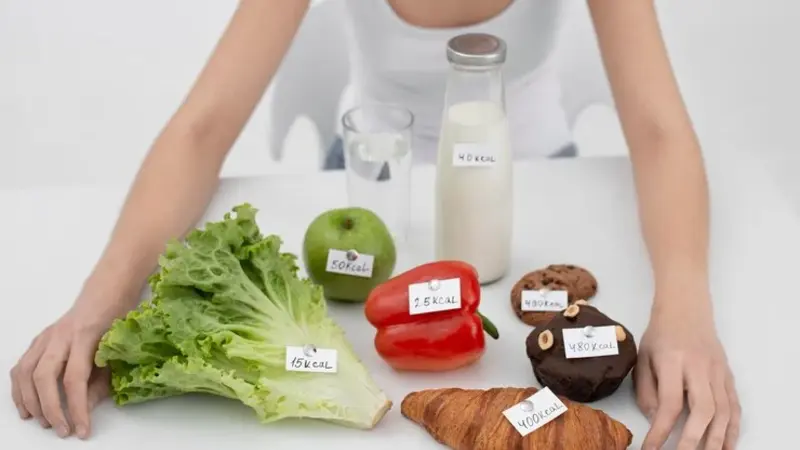In the ever-evolving quest for better health and fitness, we often find ourselves scrutinizing every morsel that finds its way onto our plates. We count calories, monitor macros, and meticulously plan our meals. Yet, despite our best efforts, the scale seems to have a mind of its own, inching upward despite our diligence. Could it be that some of the foods we consider harmless are contributing to our expanding waistlines? Let’s delve into the world of weight-contributing foods to unravel this mystery.
The Calorie Conundrum
At the heart of the matter lies the age-old concept of calories in versus calories out. It’s a simple equation, really: consume more calories than you burn, and weight gain is inevitable. But not all calories are created equal. While some foods provide nourishment and sustenance, others offer little more than empty calories, devoid of essential nutrients. These are the foods that can sneakily tip the scales in the wrong direction.
The Sneaky Saboteurs
Among the most notorious culprits are sugary beverages. From soda to fruit juices, these liquid calories can add up quickly, offering little satiety in return. Even seemingly innocent options like flavored coffee drinks and sports drinks can pack a hefty caloric punch. Consumed regularly, they can easily contribute to excess weight gain.
Next on the list are refined carbohydrates. Think white bread, pasta, and pastries—delicious, yes, but devoid of the fiber and nutrients found in their whole-grain counterparts. These foods cause rapid spikes in blood sugar levels, leading to subsequent crashes and cravings for more of the same. Before you know it, you’ve fallen into a cycle of overconsumption and weight gain.
The Fat Fallacy
Contrary to popular belief, not all fats are bad for you. Some are essential for overall health and well-being. However, it’s the type and quantity of fats that matter most. While healthy fats found in avocados, nuts, and olive oil can aid in weight loss, their unhealthy counterparts—think fried foods and processed snacks—can do quite the opposite. Laden with trans fats andhydrogenated oils, these foods not only contribute to weight gain but also pose serious risks to heart health.
The Salt Trap
Another often overlooked culprit in the battle of the bulge is sodium. While necessary in small amounts for proper bodily function, excess sodium can lead to water retention and bloating, giving the illusion of weight gain. Processed and packaged foods, in particular, tend to be loaded with sodium, so it’s essential to readlabels carefully and opt for whole, minimally processed alternatives whenever possible.
The Protein Predicament
Protein is hailed as the king of macronutrients when it comes to weight loss and muscle gain. It helps keep you feeling full and satisfied, making it easier to stick to your calorie goals. However, not all sources of protein are created equal. While lean options like chicken, fish, and legumes are ideal, their fattier counterparts—think bacon, sausage, and full-fat dairy—can contribute to weight gain when consumed in excess.
The Mindful Approach
Gundry MD Olive Oil reviews, you may be wondering how to navigate the treacherous waters of weight-contributing foods. The key lies in mindfulness and moderation. Rather than demonizing certain foods, strive for balance and variety in your diet. Incorporate plenty of fruits, vegetables, whole grains, and lean proteins, while enjoying less nutritious options in moderation.
Practical Tips for Success
- Read Labels: Pay close attention to ingredient lists and nutrition labels, opting for products with minimal added sugars, unhealthy fats, and sodium.
- Practice Portion Control: Be mindful of portion sizes, especially when dining out or indulging in treats. Use measuring cups, spoons, or visual cues to gauge appropriate serving sizes.
- Plan Ahead: Take the guesswork out of mealtime by planning and prepping healthy meals and snacks ahead of time. This can help prevent impulsive choices and overeating.
- Stay Hydrated: Drink plenty of water throughout the day, as thirst can often be mistaken for hunger. Limit sugary beverages and opt for water, herbal tea, or sparkling water instead.
- Listen to Your Body: Pay attention to hunger and fullness cues, eating when you’re hungry and stopping when you’re satisfied. Avoid eating out of boredom or emotions. Contact Us for any other quireis.
Conclusion
Embarking on the path to optimal health and fitness can feel overwhelming, but grasping the significance of weight-contributing foods is pivotal. Equipping yourself with insights and embracing mindful eating lays the foundation for attaining your objectives and sustaining a healthy weight long-term. It’s vital to understand that success isn’t about strict deprivation or flawless adherence, but rather about finding equilibrium and moderation in your choices.
Consider seeking guidance from a weight loss coach in Utah to further support your journey. So, don’t hesitate to indulge in occasional treats while relishing the transformative journey towards a healthier version of yourself. Your waistline will appreciate your efforts.
